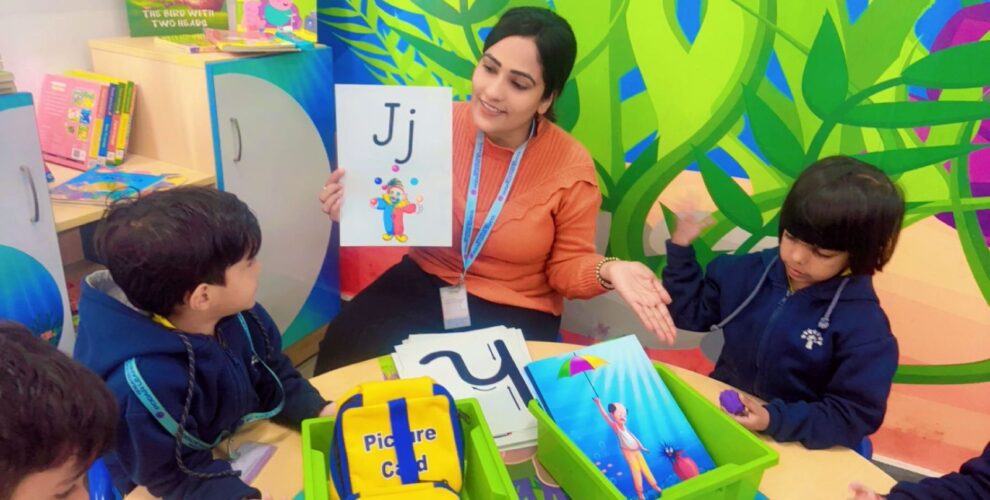What is The Importance of Phonics in Early Years?

As parents and educators, we must understand that early age education plays a crucial role in learning curve of a child. Their early reading skills set a path to their future academic success in these very early years. Phonics is one of the essential and integral parts of early years learning.
What is Phonics?
Many parents and educators themselves are not aware about the importance of phonics. In simple language, phonics is a way of teaching children to read words by sounding out them. It is done in kindergarten and preschools so that child can understand the relationship between sounds and letters which is essential for reading and spelling words. It’s a must have skill for young learners for their academic growth. Children learn how to decode words by learning phonics sounds.
Why is Phonics Important in the Early Years?
Phonics helps to gain reading fluency, comprehension, and confidence to a child in early years. Its role is pivotal in developing foundational literacy. Importance of phonics in early years can be understood by following-
1. A strong foundation in phonics sets children up for tackling complex texts.
2. Overall academic performance is improved by phonics instructions.
3. Children become confident & fluent readers if phonics is taught in early years of children.
Top Benefits of Phonics in Early Years
1. Improved Reading Skills: Phonics helps children sound out words, boosting their confidence and fluency.
2. Better Spelling: Phonics instruction enables children to understand the relationship between sounds and letters which further enables strong decoding and word recognition.
3. Early Intervention: Teaching phonics in early years helps identify children who may struggle with reading.
4. Fun and Interactive Learning: Phonics can be taught through games, rhymes, and activities which makes learning as a fun adventure.
When and How Should Phonics Be Introduced?
Phonics should be introduced in the beginning of their kindergarten, around age of 3 or 4 years. Their introduction should be engaging and gradual. An educator must start with simple letter sounds and then progress towards word formation using sound blending. Introduction to alphabet and letter sounds help them to understand the language. Following steps can be taken while introducing phonics in a preschool or kindergarten-
- Starting with the Alphabet
- Introducing simple sounds
- Blending sounds
- Introducing complex sounds
- Reading and writing
- Using interactive activities
Conclusion
Early year foundation stage is critical for learning language so if phonics is introduced timely to kids then they will be able to enjoy and excel in their educational journey.
We encourage all parents and educators to understand the importance of phonics and to prepare young kids by introducing phonics in age appropriate way. Contact us for admission enquires.

